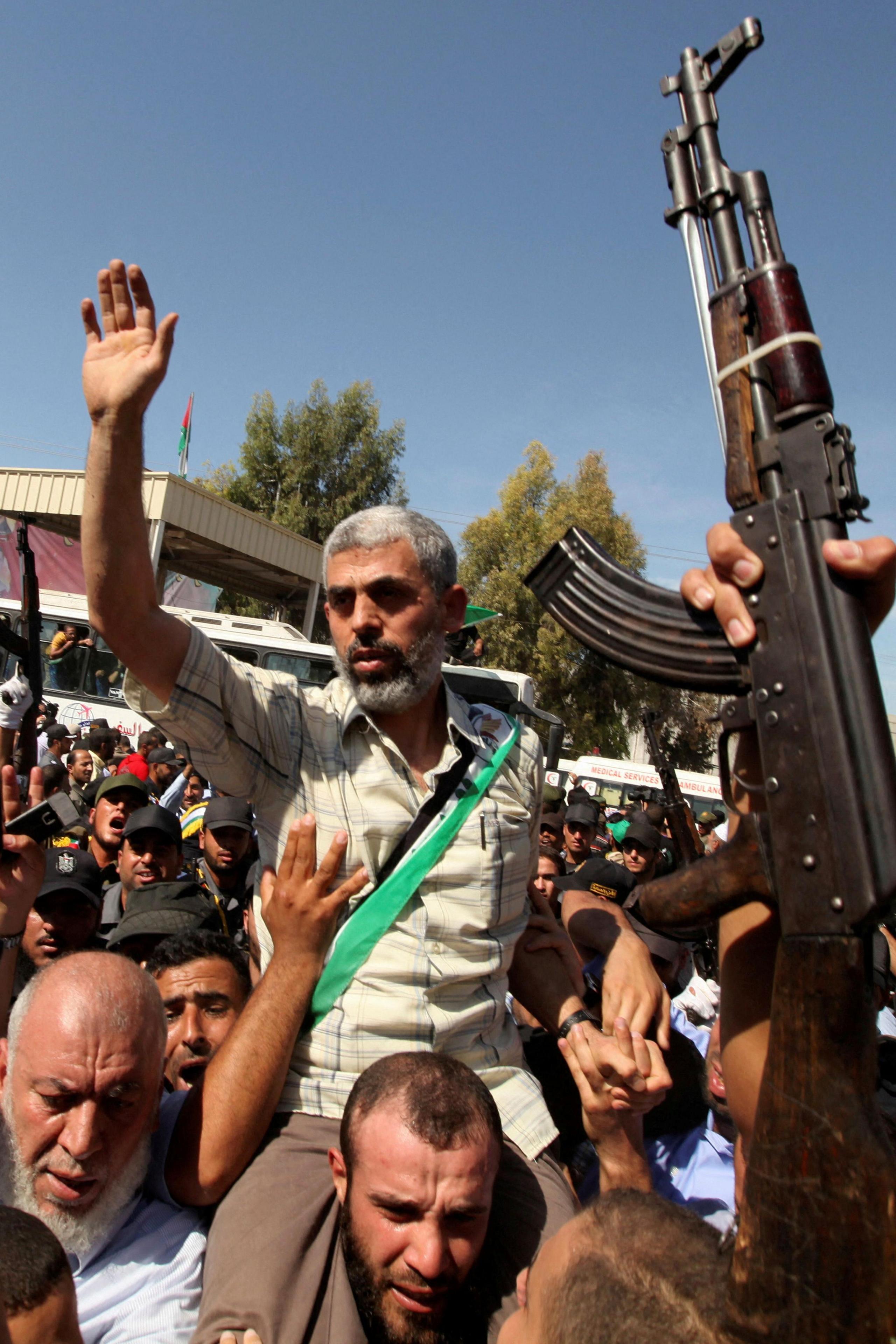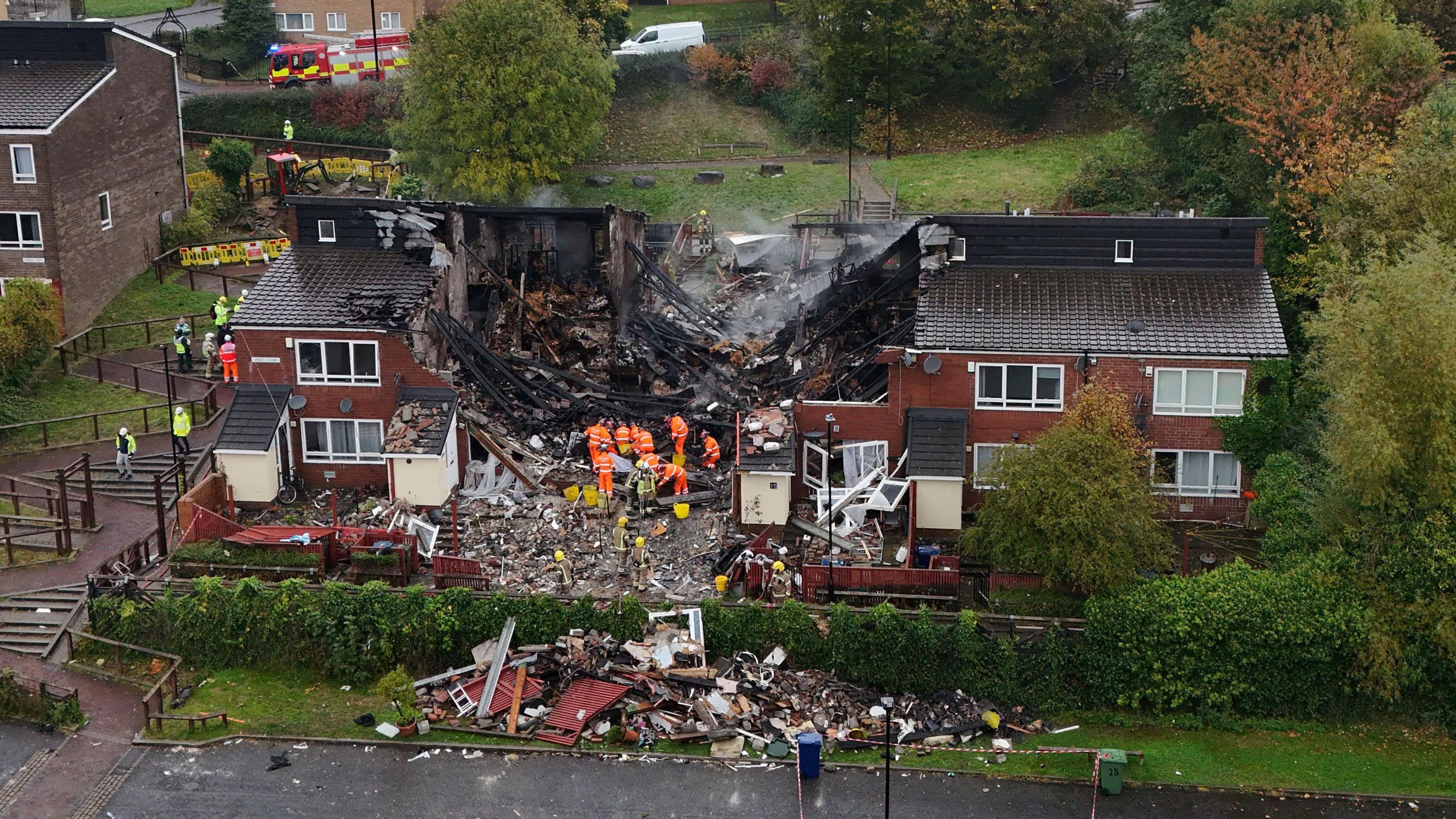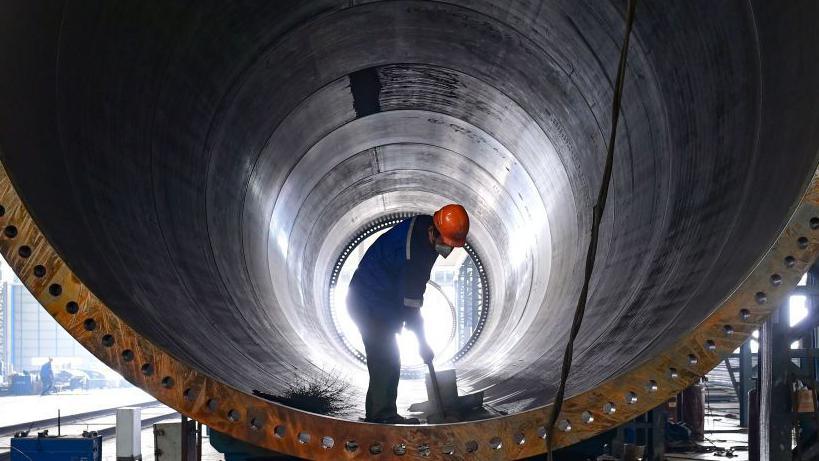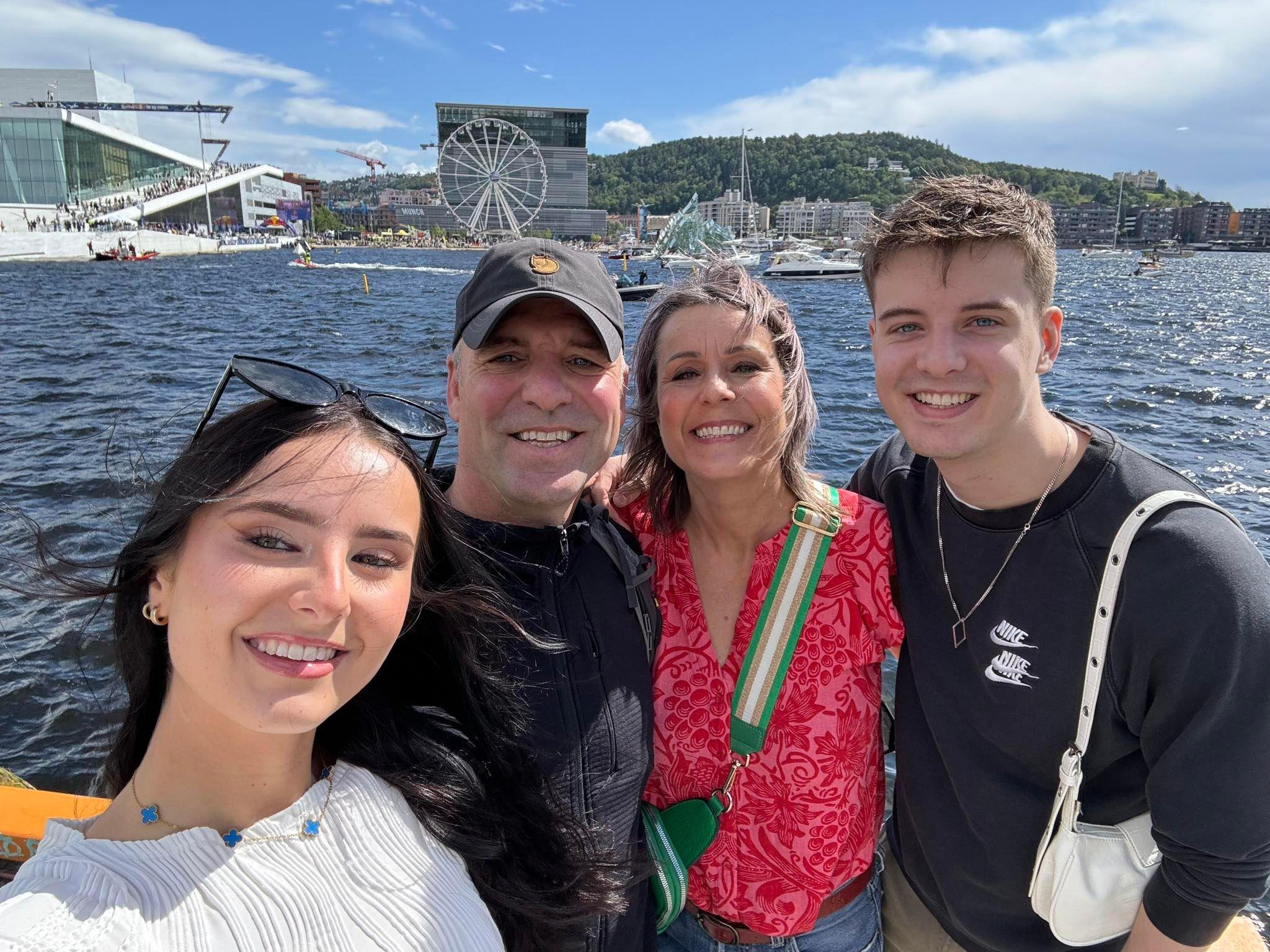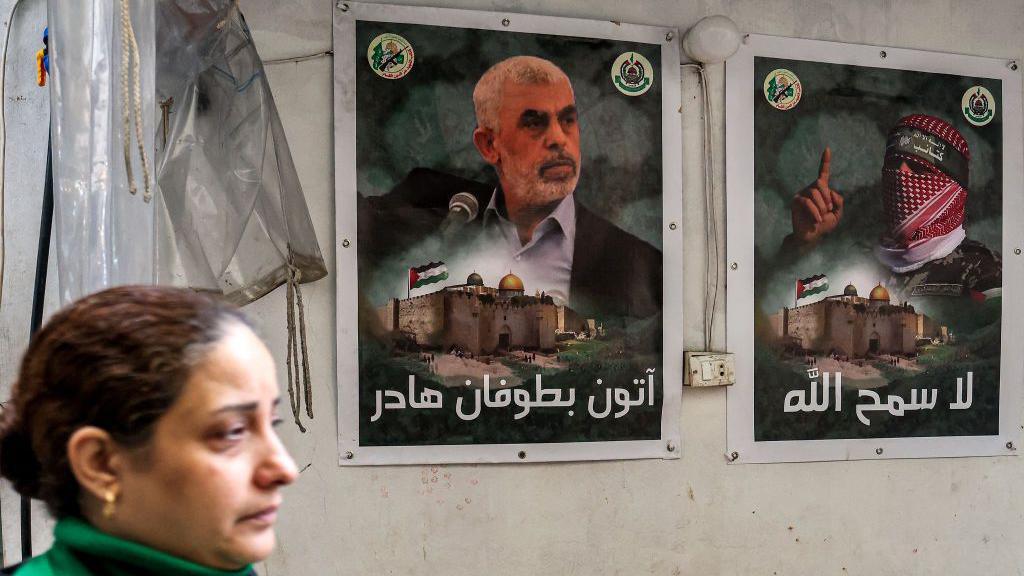
Sinwar was the leader of Hamas
Yahya Sinwar, the leader of Hamas, has been killed by Israeli soldiers in southern Gaza, Israel has confirmed.
Sinwar had led the armed group in Gaza since 2017 and was described by Israel, the US and UK as the mastermind behind the 7 October attacks – when Hamas gunmen killed around 1,200 people in Israel and took 251 hostages.
Benjamin Netanyahu, Israel’s prime minister, said the killing of the Hamas chief marked not the end but the “beginning of the end” of the year-long war Gaza.
The Israeli military said Sinwar was among three militants killed on Wednesday during a raid on a building in Rafah suspected of being used by senior Hamas figures.
It added that there were no signs of hostages at the site. It has previously been claimed that Sinwar would travel with Israeli hostages as a means of protection.
Three gunmen were sighted by Israeli soldiers running from house to house, Israel Defense Forces (IDF) spokesman Daniel Hagari said. Once fired upon, they split up and Sinwar entered a building alone.
He was spotted sitting in a chair by a drone – which he threw a piece of wood at, Hagari added. Soldiers entered the building and found Sinwar with a vest, a gun and 40,000 shekels (£8,240), he said.
Lt Col Hertzi Halevi, chief of the IDF, said: “We said we would get to him and we did get to him. The world is now better off without him.”
Confirmation of his death was delayed by several hours, as Israel compared dental records and fingerprints. Israel will have had his genetic data on file from the decades he spent in an Israeli prison.
Earlier, graphic images circulating online appeared to show a dead body resembling Sinwar lying in rubble with a severe head injury.
The IDF said at the time it was possible he had been killed – but did not want to prematurely confirm the death of a man it had been pursuing for over a year.
Netanyahu hailed the killing of Sinwar, saying: “While this is not the end of the war in Gaza, it’s the beginning of the end.”
He said the conflict could end “tomorrow” if Hamas lays down its arms and returns the remaining hostages held in Gaza.
Earlier, addressing the families of the hostages, Netanyahu said Israel would “continue with all our might until we bring every one of your loved ones home, as they are our loved ones too”.
Netanyahu told Gazans that Sinwar “destroyed your lives”.
“Hamas will no longer control Gaza,” he said. “This is the beginning of the day after Hamas, and it is an opportunity for you, the residents of Gaza, to finally free yourselves from its tyranny.”
Sinwar’s killing comes after Hamas’s political leader, Ismail Haniyeh, was killed in an Israeli air strike on the Iranian capital, Tehran, in July. Sinwar was subsequently named as Hamas’s overall leader, assuming Haniyeh’s role as well.
Sinwar – who was widely known as Abu Ibrahim – was born in Khan Younis in southern Gaza in 1962. He was first arrested by Israel aged 19 for “Islamic activities”.
Aged 25, in the late 1980s, he founded the Hamas security service al-Majd, which punished those accused of so-called morality offences and those suspected of collaborating with Israel.
In 1988, he was sentenced to four life terms in prison in Israel – but was among the 1,027 prisoners released in exchange for Gilad Shalit, an Israeli soldier held captive by Hamas in Gaza for over five years, in 2011.
Image source, Reuters
Sinwar’s death was confirmed from dental records and fingerprints
Israel’s foreign minister, Israel Katz, said Sinwar’s killing was a “significant military and moral achievement”.
Yoav Gallant, the defence minister, said Sinwar “joins a long series of eliminations”.
“Sinwar died while beaten, persecuted and on the run – he didn’t die as a commander, but as someone who only cared for himself.
“This is a clear message to all of our enemies.”
Hamas has yet to comment on Sinwar’s killing, and there is no indication of who will take his place.
Iran backs Hamas with funding, weapons and training. The country’s mission to the UN posted on X that the killing of Sinwar would lead to the strengthening of “the spirit of resistance”.
“He will become a model for the youth and children who will carry forward his path toward the liberation of Palestine,” the mission said.
US President Joe Biden congratulated Netanyahu in a phone call with the Israeli leader, saying it was “a good day for Israel, for the United States and for the world”.
He added that the death of Sinwar proved “once again that no terrorists anywhere in the world can escape justice”.
Former CIA director David Petraeus told BBC Radio 4 that Sinwar’s death was “bigger” than Osama Bin Laden’s in 2012 – “both hugely symbolic… but also hugely operational” as Sinwar was the overall leader of Hamas.
Israel’s stated aim for entering Gaza in the wake of the 7 October attack was to destroy Hamas.
Sir John Sawers, who headed up the UK’s foreign intelligence service MI6 from 2009 to 2014, said Netanyahu would now want to “press home” his advantage.
He told BBC Radio 4’s World Tonight programme: “Netanyahu at the moment feels he has a real advantage over not just Hamas but Hezbollah and Iran itself is on the back foot.
“And I think his instinct will be to press home that advantage.”
Sir John said he suspected the Israeli PM would seek to achieve most of the country’s military goals before the next US president is inaugurated in January.
Image source, Reuters
Israelis in Sderot take to the streets to celebrate Sinwar’s killing
Britain’s prime minister, Sir Keir Starmer, said the UK would “not mourn” Sinwar’s death and called for the release of all hostages held by Hamas and a goal of “long-term, sustainable peace in the Middle East”.
French President Emmanuel Macron said the death was an “opportunity” to bring the conflict in the Middle East to an end. However, Giorgia Meloni, Italy’s prime minister, said that it opened a “new phase” in the war.
The Hamas-run Gaza health ministry says nearly 42,500 have been killed so far and more than 99,000 injured in the conflict. It does not differentiate between civilians and combatants.
Some 101 hostages are thought to still be alive in Gaza. The families of the seven American hostages said in a joint statement that “all parties must immediately seize this opportunity” to bring them home “before it is too late”.
In his remarks, Netanyahu admitted that the war was “difficult and it is costing us dearly”, but added: “Today we made clear once again what happens to those who harm us.”

